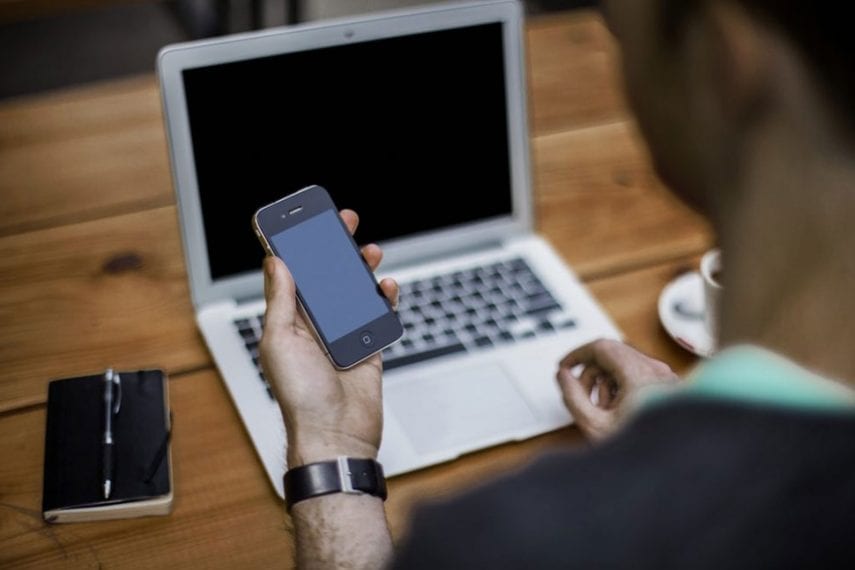An App for That: How Technology Can Augment Mental Health Treatment

Internet and mobile technologies have changed the way we function both as individuals and as a culture. Today, we can instantly share photographs with loved ones across the globe, listen to any piece of music ever recorded at the press of a button, and have our smartphones send our computers information about how many steps we’ve taken, and what our heart rate is. These technologies have also opened up the door for the development of innovative mental health apps that can be incorporated in your psychological treatment plan and help you gain increased insight and agency in your healing process. From mood tracking to relaxation to brain training, new tools to support your emotional well-being may be just a click away.
WhatsMyM3
WhatsMyM3 uses a series of questions to screen for depression, bipolar disorder, anxiety, and PTSD. Developed by a team of physicians led by Robert Post, M.D., former chief of the National Institute of Mental Health, this app stands out due to both its breadth of scope and accuracy. Research indicates that if you score below the threshold, your chance of not having a mental illness is 89%, while if you score above the threshold, you have a 65% chance of having a diagnosis. While the app does not replace a thorough and complete diagnosis, it can give you an idea of whether or not you fit into a particular diagnostic category. Even more importantly, WhatsMyM3 can help you track your symptoms over time, allowing you an easy way to monitor your response to treatment, watch for emotional and behavioral patterns that emerge in response to stressors, keeping you cognizant of your psychological well-being. You can also share your data with your clinician to give them a different perspective of your emotional state and help them tailor treatment to your changing needs.
Breathe2Relax
This app, developed by the National Center for Telehealth and Technology, teaches you how to use diaphragmic breathing to manage stress and create a state of deep relaxation. Purposeful breathing has been an integral part of emotional and physical pain reduction for thousands of years, from yogic practice to labor pain management. The somatic process of taking deep breaths engaging the diaphragm disrupts the flow of anxious energy in the body and helps ground you to create a calming response. Breathe2Relax not only takes you through the breathing process, it also demonstrates how anxiety affects different parts of the body and allows you to customize the program to match your needs. This app can be used as part of your self-care practice in between sessions with your clinician, to expand on the meditative breathing practices you have learned in treatment, and act as a vital tool for harnessing your self-soothing abilities.
Begin Your Recovery Journey.
877-727-4343eCBT Series
The eCBT series from MindApps is a group of apps the apply CBT principles in a user-friendly, at-home format. Currently, the series includes eCBT Mood for people suffering from depression, eCBT Trauma for people who have experienced trauma, and eCBT Calm for people struggling with anxiety. The apps include assessment tools to help you monitor your emotional and behavioral symptoms over time and provide relaxation and grounding techniques, negative thought and belief identification, and structured automatic thought-challenging tools. While eCBT does not replace Cognitive Behavioral Therapy with a trained clinician, it can be used as an add-on to treatment and offer a simple way to implement CBT techniques at home.
Wizard
Wizard, available as part of Peak, is a brain training game designed to help people with schizophrenia improve cognitive function and episodic memory. Developed by researchers at Cambridge University with input from people living with schizophrenia, the app is intended to be a fun and engaging way to stimulate and train the brain. A press release from the university states that “the memory task was woven into a narrative in which the player was allowed to choose their own character and name; the game rewarded progress with additional in-game activities to provide the user with a sense of progression independent of the cognitive training process.” A study comparing subjects in ordinary treatment to those whose treatment was augmented by 8 hours of Wizard playing over a 4-week period found increased episodic memory and higher Global Assessment of Functioning scores. They also found that those who were most motivated to play the game enjoyed the greatest benefits.
If you are interested in using apps as part of your overall mental health treatment, speak with your clinician to see how you can most fully benefit from the addition of these technologies. When used within or after a comprehensive treatment program, you may find that apps can enhance your self-awareness, coping skills, and overall emotional well-being and give you a simple way of building on the skills you learn in the formal therapeutic environment. At Bridges to Recovery, we encourage you to use all the tools at your disposal for improving your quality of life, and support you in developing self-care practices that preserve and augment the gains you have made in treatment.
Bridges to Recovery offers innovative mental health treatment in warm, inviting residential facilities. Contact us for more information about how we can help you or your loved one start on the journey toward recovery.






